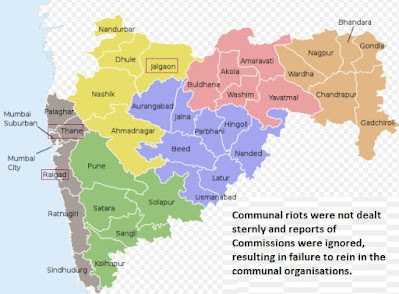Shams Ur Rehman Alavi
More than three months ago, the video of a man being threatened and brutally thrashed, had gone viral.
People were outraged as they saw the person was beaten just 'for selling goods in a locality'.
Soon, it was confirmed that the incident had occurred in Indore, Madhya Pradesh. There were voices in support of the bangle seller.
But those who tried to help him get justice, also faced a lot. The attacker claimed that the bangle seller was a Muslim who posed as Hindu, and harassed a girl.
So, the victim who got thrashed, was not just booked, but also arrested and charged with provisions under the stringent POCSA. The youths who tried to help Tasleem were seen as troublemakers and they were given notices that they would be externed from district limits.
Shockingly, when right-wing groups staged a huge protest without any permission and raised objectionable slogans in full public view, no action was taken. The man who had attacked Tasleem was freed. However, he remained in jail.
The role of TV channels was also similar. The attacker's strange logic about a Muslim person going to Hindu locality to sell bangles, was linked to the 'Love Jihad' controversy. The regional TV channels' reports were on these lines [see screenshot].
It took months, in fact, 3-1/2 months before, he could even come out. However, those who had stood for him, still appear as they had got notice to explain their role by administration.
In between, the local Hindi newspapers remained soft on attackers and their supporters, didn't portray the groups that had raised slogans as troublemakers.
The newspapers and TV channels shifted the report and gave it a twist, immediately, and pushed the right-wing narrative.
As a result, the attack on victim was no longer the story. He got booked and went to jail, remained there for such a long period and continues the case, as trial is on. However, those who created ruckus and raised slogans faced nothing at all. Is that 'journalism'? Unfortunately, that's 'mainstream journalism' and more so, Hindi journalism.
HORRIBLE AND BIASED REPORTING THAT TRIES TO PROTECT WRONGDOERS
If one reads Dainik Bhaskar and analyzes its coverage then it shows clear bias in reporting. When right-wing groups gathered in large numbers, the paper calls it 'protest by Indore'--'Indaur jutaa'.
What a spin! An attempt to legitimize the ruckus, twisting and presenting it as genuine protest over an issue while delegitimizing the other one where a small gathering that came to stand with victim, is termed 'unmaad', a very strong word.
So in one case, paper presents a group in a totally negative way, even if very few people came up and they just wanted justice, stood without sloganeering or ruckus. But in the other instance, which is huge, they don't see 'unmaad' or even criticise the mob or ask questions as to who was behind such a huge gathering. Worse, despite video evidence, paper doesn't report slogans.
Rather, support it, and even bring 'LJ' angle, own it up, as 'our' and 'of entire Indore'. Why no mention about inflammatory words, how such a gathering was allowed despite Covid protocol and admin was not aware!
This is India's largest circulated daily. The way it gives 'spin' day after day. Can make any rowdy group or goons as 'your city', 'you', 'your representative' and as a result, you won't go against them.
Paper ensures that you, the reader and more so, the majority, feels that it's your people, your protest, your issues, your demand and make you take a stand in favour of the attacker and against the victim. This is the sort of 'journalism' that so cleverly divides society, moulds the mindset of society and stops the wheel of justice from moving ahead. It has affect on everyone. All politicians, all officers. And the society.






























